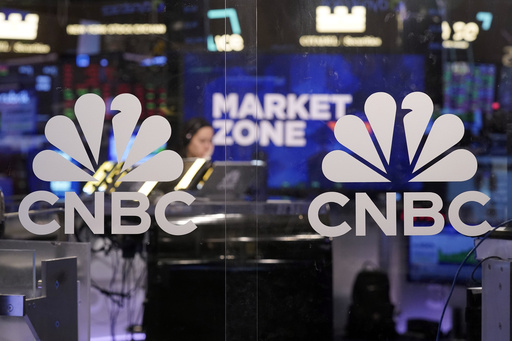
LONDON — Katja Vogt imagines a Jaguar car gliding effortlessly along the scenic Italian coastline, an image that evokes a sense of familiarity and indulgence. However, her perception of the classic brand has been shaken after the company announced a sweeping rebranding initiative this week. The 89-year-old Jaguar has decided to embrace a new identity, becoming JaGUar, which will focus solely on producing electric vehicles starting in 2026.
Gone are the classic British racing green, Cotswold Blue, and black; the company will now adopt vibrant colors like electric pink, red, and yellow. This change was unveiled in a video that has met with significant criticism online. The new mission statement for the brand is to “Create exuberance. Live vivid. Delete ordinary. Break moulds.”
In response to the changes, Vogt expressed her unease on social media, saying the transformation feels disconcerting at a time when many are searching for stability amid chaos. As a brand designer based in Cyprus, she reflected on how a heritage brand like Jaguar should ideally offer a sense of safety and a touch of defiance, rather than disorienting its consumers.
The rebranding of Jaguar aligns with a broader trend among iconic companies that have recently announced significant changes to their brand identities, challenging cultural landmarks that many people have come to rely on for a sense of self and community. Notable examples include Campbell’s, the esteemed American soup brand facing its own rebranding, and Comcast’s restructuring, which will lead to confusing overlaps in network names without any direct connection to the original NBC News.
This shift in branding could be interpreted as a reflection of the evolving identity of the United States, further complicated by the recent election of former President Donald Trump and a Republican-majority Congress amidst an already divided society. The question arises: Are our consumer choices—what we purchase, where we travel, and whom we support politically—shaping our identities?
This query resonates particularly with those who have the means to make such choices. Branding experts assert that these consumer decisions do impact our environments and identities significantly, making changes to respected brands feel like personal rejections to their loyal customers. Ali Marmaduke, strategy director at a branding consultancy in Amsterdam, noted that such branding shifts can evoke feelings of betrayal among consumers who identify with a brand’s long-standing values and ideologies.
Amidst escalating cultural tensions in 2024 surrounding politics, wars, and other global crises, Marmaduke identified a phenomenon he calls a “polycrisis”—a convergence of multiple distressing challenges that make people increasingly uneasy. As a result, many are seeking something they can rely on to help navigate these turbulent times.
Catchy slogans like Trump’s “Make America Great Again” and Biden’s “Build Back Better” illustrate the drive to consolidate identity and purpose. Campbell’s CEO, Mark Clouse, clarified that while they will be renaming the company to Campbell’s Co., their classic slogan “Mmm Mmm Good” will remain unchanged, reflecting a diverse array of products beyond soup.
As Jaguar embarks on this radical transformation, questions arise about what remains of its identity if it strays far from being the sleek, iconic car brand. Soon to reveal a completely fresh logo and other branding elements, this rebranding effort is set for its debut on December 2 during Miami Art Week, marking the launch of a new electric GT model. Jaguar’s messaging suggests a need to adhere to the original philosophy of its founder, Sir William Lyons, who believed in originality over imitation.
The anticipated changes are designed to appeal to a wider, more diverse audience, shifting focus from high-volume sales of luxury cars to offering fewer, high-end options at inflated price points. However, the response to the rebranding has not been welcoming, with many reacting with confusion and outrage. Memes began circulating that drew parallels between the new marketing approach and cultural references like Teletubbies and various trends perceived as “woke.”
Responses to this backlash range from criticisms of Jaguar’s departure from its traditional branding ethos to speculations about the potential irony of the rebranding effort. Some marketing professionals pointed out that successful brand updates should be memorable and easily comprehensible, something that JaGUar has stumbled on since its announcement.
In a humorous twist, even media outlets quickly corrected themselves when reporting on the rebranding, indicating that the only uppercase letters in JaGUar were not just the ‘G’ and ‘U’ but also included the ‘J.’
This turmoil surrounding the rebranding of such a historically significant name illustrates the complexities intertwined with modern branding and identity in a rapidly changing world.
